Spanish vs French: Difficulty, Grammar, and More
There are a lot of reasons you would want to compare Spanish vs French.
Maybe you have to pick which to study, maybe you want to learn both, or maybe you’re just curious!
In this article, we’re going to go through the biggest points of comparison between the two languages.
And I know--because not only did I have a really terrible time in high school Spanish… but I’m now a polyglot who speaks both!
Use the navigation bar below to find the answer to your specific question or read the whole article through to get our full comparison of Spanish vs French.
Note: I am affiliated with some of the resources mentioned in this article, so I may make a small commission (at no cost to you) if you decide to buy anything. However, those affiliations have no input on the contents of this article or what I do / don’t recommend.
1. Do more people speak French or Spanish?
Like English, French and Spanish serve as official languages and business languages in a lot of countries.
You can click the map to see more about where exactly their former colonial powers reached. But part of the reason they were so prominently taught in schools for so long is because of how helpful they used to be in business, diplomacy, and travel.
While English now reigns supreme as the global langua franca, the number of countries who speak Spanish or French as an official language is significantly more than English.
Let’s compare the two languages in their usefulness and check out the numbers.
- 76.8 million people speak French as a native language worldwide (2014) [source]
- There are an estimated 274 million French speakers total, including people who learn it as their country’s official language (such as in Haiti, where it’s not their home language but is the language of school and government) and foreign language learners in non-francophone countries [source]
- 30 countries have French as an official language, either alone or with additional languages [source]
- The total number of French speakers by 2050 is expected to be 650 million according to a demographic projection led by the Université Laval and the Réseau Démographie de l’Agence universitaire de la francophonie
- 483 million people speak Spanish as their native language in Spanish speaking countries, including either as their home language or language of education/commerce (2019) [source]
- 75 million additional people speak Spanish as a second language or with some limited capacity [source]
- 20 countries have Spanish as an official language, either alone or with additional languages [source]
But it’s more interesting than that!
- The biggest population of Spanish speakers is in Mexico with 126 million Spanish speakers [source]
- The second biggest population is in the United States with 58 million Spanish speakers [source]
- But French was also one of the major colonial languages of the United States, with descendants of French pioneers still living in Louisiana, pockets of the midwest, and parts of New England (and still speaking French as their home language)! [source]
So while Spanish has significantly more total speakers, French is a more-studied language spoken in more countries.
2. How similar are Spanish and French?
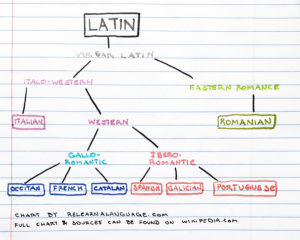
This is a very, very simplified version of the Romance language family tree. There are over 40 presently-spoken romance languages, but you can see here how close (or distant) French and Spanish are from each other vs from the rest of their family!
French and Spanish share a lot more than just their colonial past.
Just like how both France and Spain took over major parts of the globe during the historic period of conquest, they have one other thing in common: their home countries were originally conquered by the Romans.
The languages that were originally spoken in Spain and France are long gone, with the lone exception of Basque. (Which is a story for another time.)
Latin eventually overtook the local indigenous languages of huge parts of Europe. But when the Roman empire began to crack and split apart, so did the language.
The chart on the right is a huge over-simplification of the history of Latin languages and excludes many of the 40 currently-spoken Latin languages. (Not to mention many of the dormant languages no longer spoken, such as Dalmatian and the African Romance languages.)
But when you see the proximity on the family tree of French and Spanish, you’ll start to get a good idea of their similarities (and differences).
Lexical similarities between French and Spanish
“Lexical similarities” means how many words are identical (or nearly identical) between two languages. For Spanish and French, their lexical similarity is about 75%. In comparison, Spanish and English have a lexical similarity of only 30-50%, and French and English of only 40-50%. That’s because not only are the Spanish and French languages neighbors, but from the same family of romance languages.
[source 1] [source 2] [source 3]
All romance languages, no matter how far apart on the family tree, share some similarities.
But in Spanish and French, those similarities may be hidden. This is mostly because the distinct French accent makes it sound so different from other European languages, or because there are so many distinct Spanish dialects.
But let’s look at a few words to get a sampling. (And I’ll leave you an emoji so you can guess the English word.)
- *Spanish, French
- 🍛 la comida; la nourriture
- 🌎 el mundo; le monde
- 🏛️ la politica; la politique
- 🧀 el queso; le fromage
- 🍷 el vino; le vin
- 📖 el libro; le livre
- 🐶 el perro; le chien
- 🏫 la escuela; l’ecole
- 🌲 el arbol; l’arbre
- 🍳 el huevo; l’œuf
So you can see which words might have similar Latin roots… and which ones don’t.
Unfortunately, because of how distinct their accents (and grammar) are, French and Spanish are not mutually intelligible.
(That is, if you speak one you can’t necessarily understand the other.) However, if you are literate in one, you may be able to understand some of the other when it’s written down--where the similarities become more apparent.
Still, this means when you go to study one language you’ll often get thousands of free words in the other. (One of the many reasons most polyglots often speak so many Romance languages. It can sometimes feel like a buy-one-get-three-free sale!)
Romance language grammar
The fastest way to understand grammar in other languages is often, in my experience, to understand the grammar in your own language.
So let’s take a look at two major English dialects (Standard American and Standard British) and their grammar differences.
Once we’ve explored English, we’ll look at how what we learned applies to French vs Spanish grammars.
There are some easy questions and some responses in the two dialects that sound “normal” to the native speaker’s ear.
- Why does Jenny feel ill?
- 🇺🇸: She ate too much.
- 🇬🇧: She’s eaten too much.
- I can’t find my keys.
- 🇺🇸: Did you see them?
- 🇬🇧: Have you seen them?
- Where were you?
- 🇬🇧: In hospital.
- 🇺🇸 : At the hospital.
- Are you coming with us?
- 🇬🇧: I might do.
- 🇺🇸 : I might.
[source]
No matter which dialect you speak, you can see the clear differences--but wouldn’t have any trouble understanding the other person’s dialect.
But their way of saying it just wouldn’t be how you would say the phrase.
So why am I getting into English grammar?
That’s because, over time, dialects tend to diverge from each other--and over the past 300 years, our English grammars have certainly diverged a bit.
But over 2000 years?
The grammar diverges so much entirely new languages are born.
And that’s exactly what happened with Spanish and French.
So using some of those vocabulary words from above, let’s compare French vs Spanish grammar.
- 🇬🇧🇺🇸 The wine is good.
- 🇪🇸 El vino es bueno.
- 🇫🇷 Le vin est bon.
So far so good! European languages have a lot in common.
Now let’s make these sentences a bit more complex.
- 🇬🇧🇺🇸 The red wine is good, but I need a glass of water.
- 🇪🇸 El vino tinto es bueno, pero necesito un vaso de agua.
- 🇫🇷 Le vin rouge est bon, mais j’ai besoin d’un verre d’eau.
You can see how they start to diverge in their own “romance language way” from English when you see that the descriptor (red) switches spots with the object (wine).
Outside of how different the French way to say “I need” is, they still look relatively similar.
So let’s take it up one more notch.
- 🇬🇧🇺🇸 Do you have wine? / No, there’s no wine, sorry.
- 🇪🇸 ¿Tiene vino? / No, no hay vino, disculpa.
- 🇫🇷 Est-ce que vous avez de vin? / Non, il n’y a pas de vin, désolé.
With French, like English, we have little ways to ask questions. In English, we can mark a statement (“you have wine”) with “do” to make it a question.
Similarly, in French, they have “est-ce que” (pronounced /es-kuh/, literally meaning “is it that”).
But in Spanish, you simply have the statement but inflect your voice to raise it up. (The written language has an upside-down question mark to avoid any confusion.)
Then we also have the construction “there is” or “there is not”, which you can see here gets a bit more complicated in French. It’s a topic for another post, but saying “no” in French is more complicated than in English or Spanish.
So in short, French and Spanish have a lot of their core grammar in common.
But since the fall of the Roman empire, both have clearly become their own distinct languages.
3. Is French or Spanish easier?
There are a lot of huge factors to consider when talking about the easiness of a language:
- The target language’s relationship to your native language
- Particularities in that language (such as pronunciation or irregular grammar)
- Your motivation to learn
So we’re going to tackle that briefly here in 3 sections.
However, if you’re wondering which will be easiest for you to learn, I suggest taking my quiz: Should I learn French or Spanish? (2020 Quiz). It’ll give you a much more in-depth explanation.
The relationship between English and Spanish or French
We’ve already gone over the lexical similarities of English, Spanish, and French. To recap, English has slightly more words in common with French than it does Spanish.
That’s because not only was English influenced by Latin with the Roman invasion of the British isles in the years 50-500 [source], but again by the Normans (aka the French) in the 1000s. [source]
That means English had two historic touch-points with Latin: first with Latin itself, then with medieval French.
So the English-Spanish vocabulary and grammar connection comes from that first conquest much longer ago.
And the English-French connection was much more recently: about 1000 years ago.
So the Spanish-English connection is much less direct being so much longer ago. So words like mirrar (to look) may look like mirror (the thing you look into) and puerco might look like pork, but the connection isn’t always totally obvious.
With French, however, connection more obvious because the contact was more recent.
Some people drink champaigne, but others prefer biere. Before you leave the house you need to charger your télèphone and run to the toilette to quickly dust on some makeup with a brosse.
So with either Spanish or French, English speakers will have a distinct advantage over, say, a Russian speaker because of this.
But French may give English speakers a light vocabulary advantage over Spanish.
But let’s take a look at one of French’s most peculiar features: it’s pronunciation.
Spanish vs French Pronunciation
The pronunciation of French is rather… unique.
You might have seen memes such as this one making their way online, joking about French homophones (words that sound identical).
French can kind of be like this sometimes. And in class, you’ll even learn about all of them!
So If you look at French vs Spanish in terms of accents, the French accent is far from the accent of any other Romance language.
You may have heard that, under certain circumstances, Spanish and Italian speakers can understand each other. Same for Portuguese and Spanish or Spanish and Catalan.
But no one ever says that for French.
They might be able to read in French, sure. But understand it when someone is speaking?
That’s because Spanish (like many of the romance languages) has 5 distinct vowel sounds: a, e, i, o, u.
You might think that’s how many English has too, right? But say the words “cut” and “put” out loud.
Those u’s are different.
Try “hat” and “hate”.
That’s two different a’s.
That’s because English might only have 5-6 vowel letters, but those letters represent around 19-21 vowel sounds.
Likewise, French has only 5-6 vowel letters but 13-15 vowel sounds, including nasal vowels (which we don’t have in English). [source]
And again: Spanish only has 5.
(If Y is ever used, it said the same as i.)
Catalan has 7-8. Italian has 7. European Portuguese has 9.
So for speaking purposes, the Spanish accent is significantly easier than French.
How long does it take to learn French vs Spanish?
I’ve written on this topic before, but according to the US government it takes about the same time to learn any Latin language--French, Spanish, Portuguese, Catalan, Italian…. you name it.
However, if you want to know exactly how long it would take you personally to learn French or Spanish, I have two great calculators built into my site for you.
- How long does it take to learn Spanish? [CALCULATOR]
- How long does it take to learn French? [CALCULATOR]
The above articles will take you about 15min to get through, but by then end you’ll have a custom time frame for you personally!
4. Which has more language learning resources?
One thing that many language learners don’t realize (including me, many years ago) is that the number of resources in a language can have a massive impact on your ability to learn the language.
The good news is that both Spanish and French are languages spoken by hundreds of millions of people around the world.
Not only have governments put in a lot of money to make good resources but so have individual teachers and publishers looking to capitalize on the languages’ popularity.
I have a huge list of Langauge Learning Resources broken up by language and level. But for now, here are a few of my favorite that I’ve used in both languages (so no matter which you’re considering, you can find this list helpful.)
- Self-taught courses: Michel Thomas audio courses, Practice Makes Perfect workbooks
- Apps: Anki, Mango Languages, or my favorite uTalk
- Fun listening practice: Easy Languages YouTube channel
- Fun reading practice: any of the many short story books made for language learners available at your favorite bookstore (there are too many to name)
But for huge lists put together by language learners and teachers, check out my language- and level-specific language resources lists.
5. Should I learn French or Spanish?
If you’re a student in the US, you may have to learn a language to fulfill a language credit.
Or, if you’re an adult looking for a new hobby, you may think that starting a language (any language) would make for a great hobby that looks great on your resume.
No matter why you want to pick between French and Spanish, there are some key things to consider that this article can’t cover.
That’s because they’re personal to you and your priorities.
That list is:
- Are you interested in learning either French or Spanish?
- What do you normally do for fun?
- Where do you live?
- What do you do (or want to do) for work?
- Do you speak either in your family?
- Do you want to travel?
The reason this is all so incredibly personal is because language learning is personal. Becoming fluent in a language can take months of full-time work or years of more casual work. Spending all of that time with a language will become incredibly frustrated if you can’t figure out why you’re learning it.
If you want to answer those questions for yourself, head on over to Should I learn French or Spanish? (2020 Quiz)
6. Can you learn French and Spanish at the same time?
The short answer is: yes!
But should you learn French and Spanish at the same time?
That depends.
I’ve spent years studying both languages together, and to me, it was the perfect solution to my short attention span and curiosity.
Some benefits of learning French and Spanish at the same time are:
- Picking which language you want to focus on during some given day keeps you from getting bored
- They share a lot in common, so often when you learn a word in one you’ll be able to guess it in the other
- More music, Netflix, YouTubers, and language learning resources to enjoy!
But some problems you will face are:
- Time divided between 2 languages = slower language learning progress
- You will confuse them for a while, and that can be extremely frustrating
If you want to learn more about learning two languages at the same time, and see my personal tips from my experiences, check out my post on Learning French and Spanish at the Same Time.
Do you want to know anything else about Spanish vs French?
As you’ve seen in this article, I know a lot about both French and Spanish. I’m also incredibly passionate about language learning!
In the comments, leave any other questions you have about French vs Spanish. I’ll keep an eye out here and can add another section to the page if I think it’s valuable for other people.
I hope this article was helpful, and like I said--let me know if you want to see anything else on this topic!
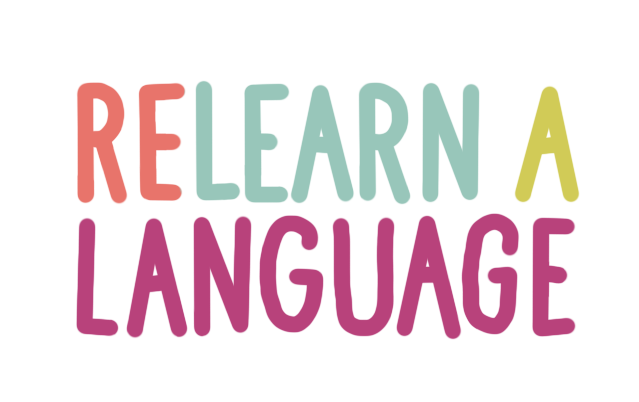
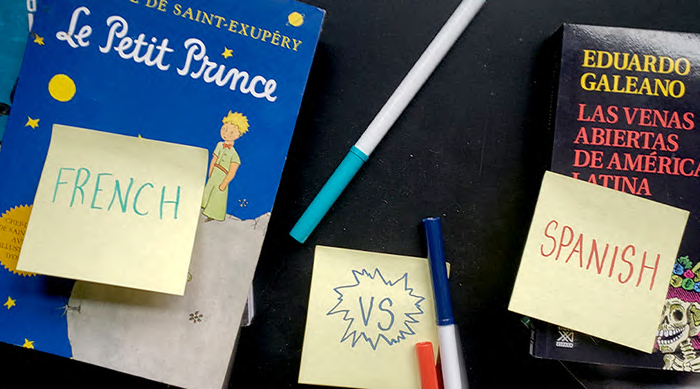
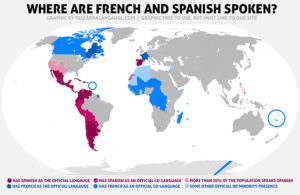
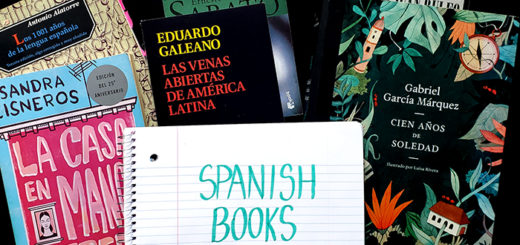
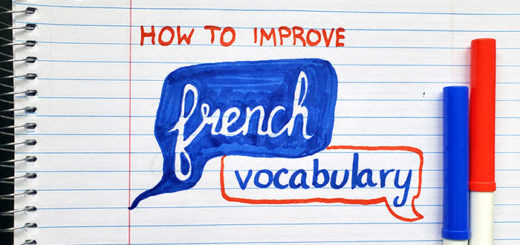
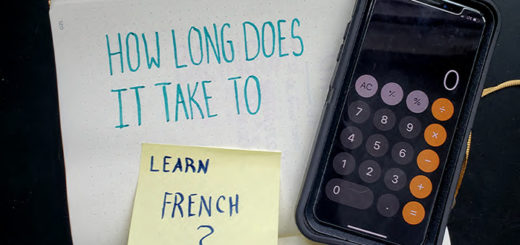

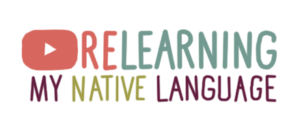
Your information about the relative number of countries using English as an official language is wrong. English is used as an official language by 67 countries, way more than French (29) and Spanish (21) combined.
Thanks for your comment! I didn’t comment on the number of English-using countries to my knowledge since that’s not what the article is about. What’s your source for the number of French and Spanish, since it’s different than the numbers I’ve seen?